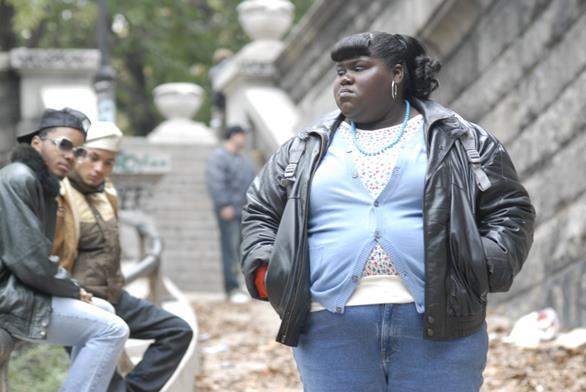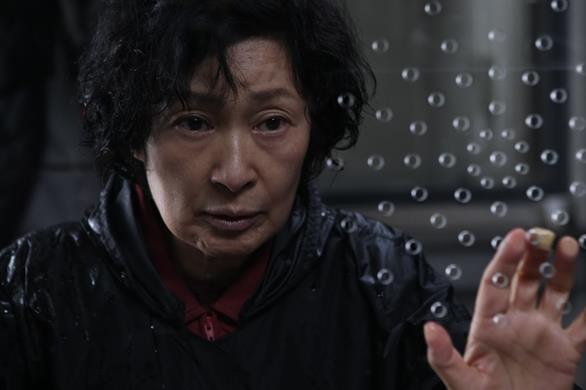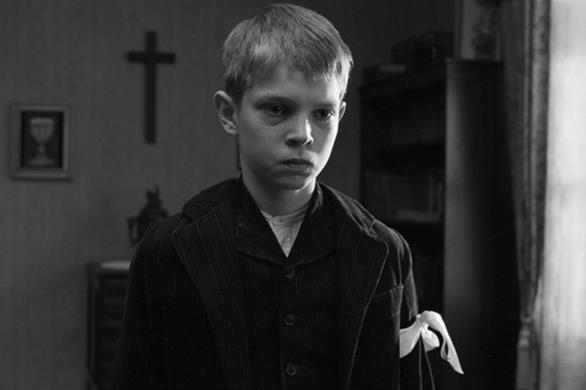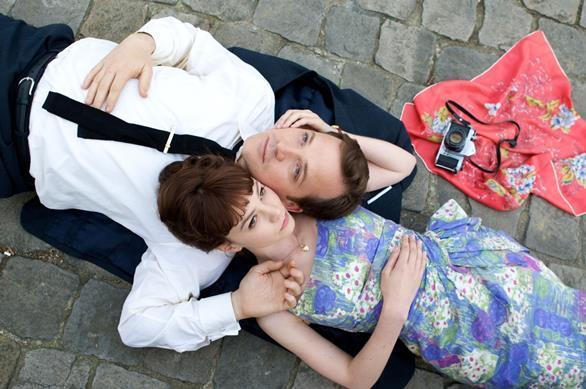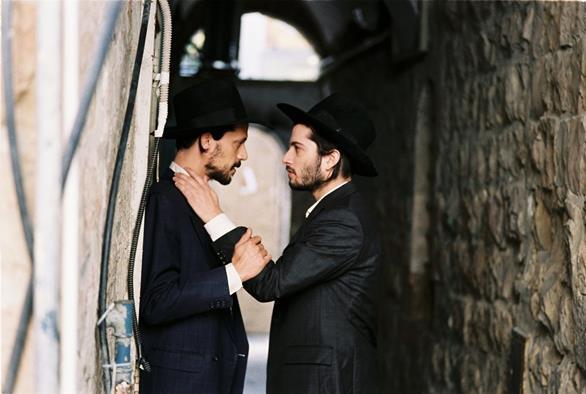There are two stars in THE LADY EVE: Preston Sturges' witty script, and Barbara Stanwyck as the beautiful adventuress with a vulnerable heart, Jean Harrington. The joy of the film is watching these two stars toy with the other characters in the film, and with us! Stanwyck - in sharp contrast to the impenetrable shark in DOUBLE INDEMNITY - plays a witty, wise businessman who happens to be a woman, and like any woman, is capable of being piqued, and once piqued, of exacting revenge! In a bravura opening scene she sits in a cruise-ship dining room surveying her rivals - a variety of sophisticated women trying to attract the attention of limpid, naive, rich Charlie Pike (Henry Fonda). Subtly spying on their pathetic attempts on her compact, she gives a razor-sharp, incredibly funny commentary on woman trying to catch a man. And really, as she says later in the film, is there anything so wrong in being a blatant adventuress? Isn't every woman an adventuress at heart?!
"Holy smoke, the dropped kerchief! That hasn't been used since Lily Langtry. You'll have to pick it up yourself, madam. It's a shame, but he doesn't care for the flesh. He'll never see it. Look at that girl over to his left. Look over to your left, bookworm. There's a girl pining for ya. A little further. Just a little further... There! Wasn't that worth looking for? See those nice store teeth all beaming at you. Oh, she recognizes you! She's up, she's down, she can't make up her mind. She's up again. She recognizes you! She's coming over to speak to you. The suspense is killing me. "Why, for heaven's sake, aren't you Fuzzy Oathammer I went to manual training school with in Louisville? Oh you're not? Well, you certainly look exactly like him, it's certainly a remarkable resemblance... But if you're not going to ask me to sit down, I suppose you're not going to ask me to sit down... I'm very sorry, I certainly hope I haven't caused you any embarrassment, you so and so.""
Of course, Jean Harrington, as a professional, has a better plan and catches her man rather elegantly, culminating in a seduction sequence where she makes playing with his hair the most sexy thing you've seen on screen for a long time. Only problem is, poor Charlie Pike discovers her game and casts her off at the end of the first half of the movie. Does Jean sulk? Does she feel bad? Not at all! This wonderfully active, ballsy heroine takes her destiny into her own hands again, and infiltrates Charlie's circle as an English aristo, the Lady Eve! Of course he recognises her, and perhaps subconsciously wants to fall in love with her again. His loyal valet may keep protesting it's the same chick, Charlie is in denial all the way to the altar, when Jean skewers his ego with tales of past loves. The second truly bravura dialogue scene is on the honeymoon night. Just watch how Jean elegantly lets slip about a certain Angus and then unravels a sorry tale of her mis-spent youth. And look how Charlie goes from moon-calf love to pompous forgiveness to absolute disgust!
Even after seventy years, the dialogue in THE LADY EVE still fizzes off the screen - the pratfalls are still brilliantly funny if, admittedly, childishly over-used. Just stop and think awhile how clever it is that Sturges can pull off both styles of comedy in the same film. Even more amazing, think how clever it is that Sturges can create as finely balanced character as Jean/Eve - she's a powerful modern woman but also, a sucker for love! She is urbane and sophisticated, and yet you do believe that she would fall in love with the innocent Charlie, just as you believe that Charlie is bewitched and amazed by Jean. We talk a lot about "odd couples" in comedy, but this is one of the best. THE LADY EVE is, simply put, a great film!
THE LADY EVE was released in 1941. It was nominated for the Best Screenplay Oscar but in a year when even CITIZEN KANE was overlooked in most categories in favour of HOW GREEN WAS MY VALLEY, lost out to a forgotten pic by Harry Segall.






